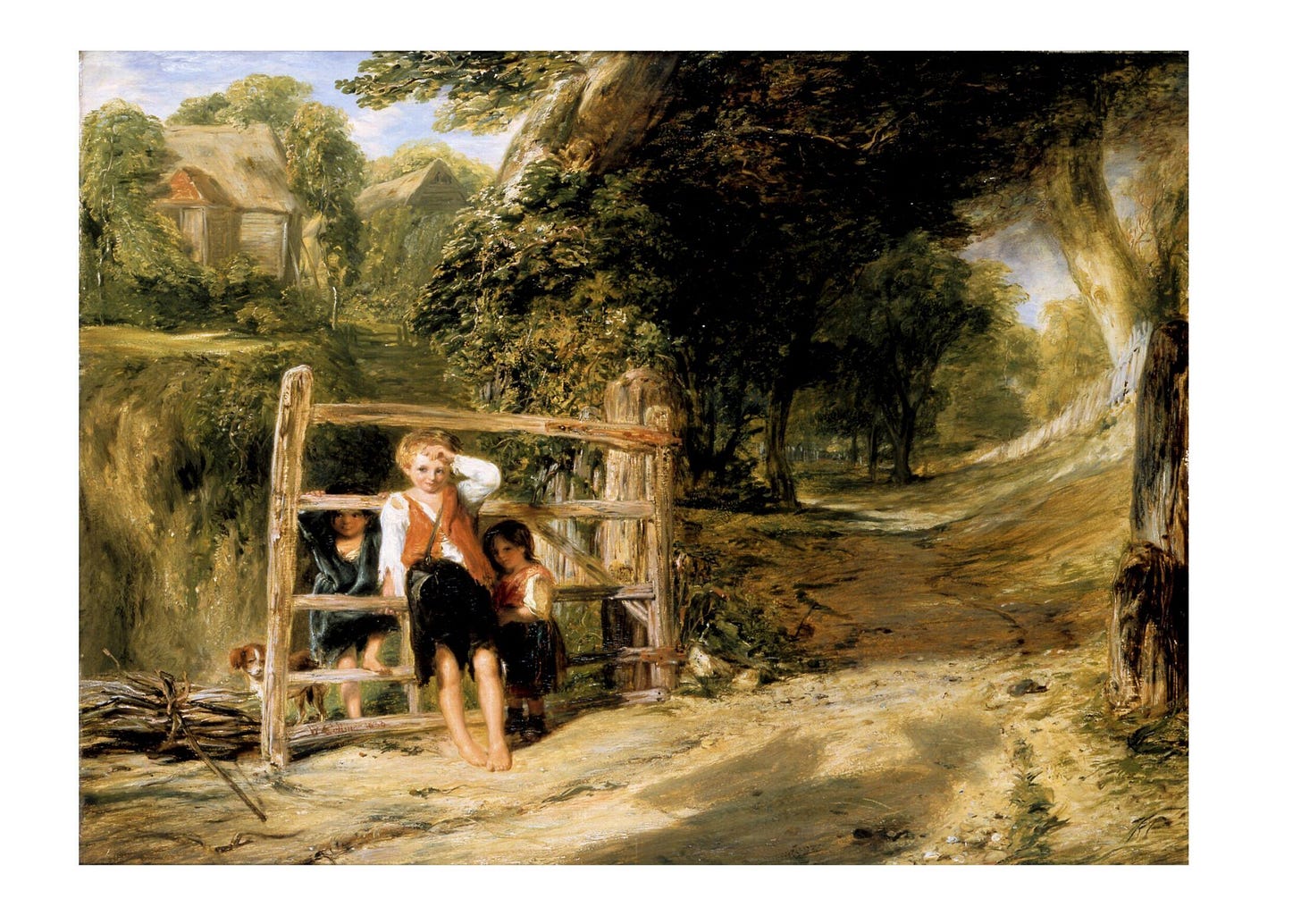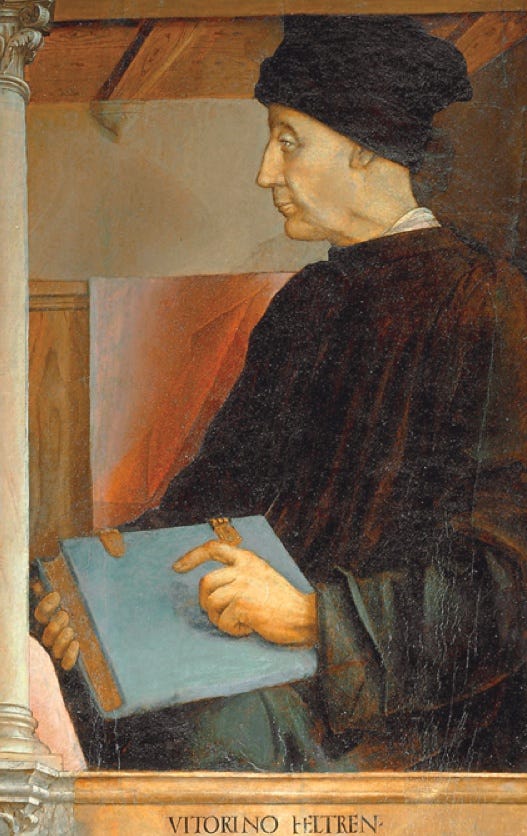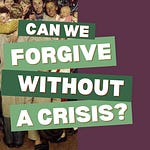Gracious reader,
I once ran into a friend and we both genuinely wanted to reconnect. We pulled out our calendars on the spot. It was April. She suggested January. That moment startled me. Not because there was anything wrong with her offer, but because it revealed something about the architecture of contemporary life. Many of us inhabit schedules so dense that ordinary human connection requires long lead times. In my own life, that level of advance planning is impossible. Between young children, writing deadlines, travel, and the simple need for rest, I cannot predict my own state two months in advance. Yet that small encounter became a mirror. It showed me how little margin many of us have, and how easily hospitality gets squeezed out of daily life.
This reflection led me to two insights.
The first is a theme that I have been exploring with the Civic Renaissance Ambassadors: to work well we have to rest well. Modern life is in many ways inimical to rest. We need to cultivate more margin, more rest, more emotional welath. Doing so can lead us to have more margin for social wealth: the “currency” of social relationships that enrich our lives. This leads to my second insight:
Hospitality can be understood as a modern analogue to what earlier ages called noblesse oblige. In medieval and early modern Europe, noblesse oblige referred to the duties tied to noble status. Aristocrats were expected to fund local works, offer protection, mediate disputes, feed travelers, and care for the vulnerable within their domain. The logic was clear. If someone possessed more land, stability, and security than others, those advantages carried obligations toward the wider community.
The substance of that privilege has changed. Few people today hold hereditary estates or political power. The unevenly distributed resource now is not land or rank. It is margin. It is time that is not already claimed. It is attention that can be offered freely. It is the emotional and relational capacity to include someone else at the table. These forms of abundance are as real as property once was, and just as unevenly distributed.
Material need persists, but in many communities the sharper form of poverty is relational. People who have food, shelter, and work can still feel isolated. The poverty most often encountered today is social rather than material.
This is where hospitality matters. If we have even a small surplus of social or emotional bandwidth, we can share it. Extending an invitation to join your Thanksgiving table tomorrow or this weekend can meet a need that is easy to overlook. The gesture does not require elaborate hosting. It requires margin and the willingness to share it.
Some households have more room for this in a given season. Others are carrying heavy responsibilities and need to receive hospitality rather than offer it. Recognizing this uneven distribution lets us see hospitality as part of our civic life. Those with a little extra margin can extend it. Those with less can receive it. Both contribute to a healthier community.
The historical language around condescension illustrates this older expectation. The word now suggests speaking down to someone. In earlier contexts it sometimes referred to stepping downward to meet another as an equal. I mention this only as background. Societies have long expected those with more to move toward those with less. Today the “more” is not land or power. It is margin and relational capacity. The responsibility attached to it remains the same.
Why social wealth and hospitality obligates us to show welcome others
Hospitality is not simply a private virtue. It is a civic practice. It strengthens the fabric of local life in at least three ways.
First, it counters the loneliness gap.
Loneliness is not always produced by dramatic isolation. It often emerges through accumulated small exclusions. People can be in long-term friendships or committed relationships and still feel lonely, because the relationships may lack the forms of recognition, attention, or inclusion that allow a person to feel seen rather than sidelined in the parts of life that matter most.
People move, lose loved ones, enter demanding seasons of caretaking, start over in new cities, or carry responsibilities that leave them exhausted. Invitations, even simple ones, counter that crisis of people feeling unseen, and therefore lonely.
Second, hospitality corrects the visibility gap.
Many people do not actively signal that they are alone or in need of company. It requires attention to notice who might not have a place to go on a holiday. That attention is a civic discipline.
Third, hospitality expands the circle of belonging.
A community becomes more humane when people assume responsibility for inviting, including, and welcoming others, especially those outside their immediate social bubble.
These contributions do not require perfect homes or elaborate meals. They require margin, attentiveness, and initiative.
A personal rhythm of spontaneous welcome
My own life often moves on a spontaneous rhythm. I usually decide on the day itself whether I have the capacity to host. Some mornings I know it will be a quiet family day. Other times I find myself making Neapolitan-style pizza with the children, and I think: who would enjoy sharing this evening with us?
I’ll often invite a handful of people to join us for dinner same day. Many people cannot join on short notice, and that is fine. The value is in the invitation rather than the outcome. Still, building more margin into our lives so we are not so drained from work and life that we yearn to retreat into a dark room alone at the end of the day (I know the feeling!), and putting habits of renewal in place so we have the emotional bandwidth to reach out, can make a real difference in addressing the loneliness many people feel.
Emotional hospitality
This rhythm has taught me something. Real hospitality does not need grandeur or months of planning. It needs room. When there is no room in our schedules, the first thing to vanish is the chance to bring others in. I’ve also found that sometimes the antidote to burn out is relationship—choosing to give and serve others through hospitality and welcome when I feel like I don’t want to counterintively rejuvinates me.
It’s like pushing myself to exercise adn go to the gym: I rarely want to do it, but I also rarely regret it.

The ethical logic of noblesse oblige, updated for modern life
Noblesse oblige is an old idea, but its core insight remains useful. A person with resources has responsibilities toward those without them. Translated into our social landscape, the relevant resources are:
• time that is not already claimed
• emotional bandwidth
• flexibility
• a stable home base
• the confidence or habit of hosting
If you possess even one of these, you have something to give.
The good news is, even if we don’t have them, we can cultivate them with some simple fixes: getting up early, saying no to more, having boundaries around our work so we have time to renew, and so many others.
Hospitality becomes a form of stewardship. It is not an attempt to fill a social quota. It is a commitment to ensure that those around us do not fall through the cracks of hyper-scheduled life.
How to identify people who may particularly appreciate an invitation, both this thanksgiving, and beyond
These are practical methods that do not require intrusive questioning.
Look for transitional seasons.
New parents, recent movers, young adults living far from family, graduate students, international students, neighbors who recently started new jobs, coworkers who mention long commutes, people whose families live out of state. These categories often correlate with holiday isolation.
Listen for hesitation when asking about plans.
If someone pauses or gives vague answers, they may not have a firm plan. That is often an opening to say something like you are welcome to join us if you wish.
Offer partial invitations.
Invite someone for dessert, a walk, or an hour of conversation. Not everyone wants a full meal. Flexibility lowers barriers.
4 .Use community channels thoughtfully.
Neighborhood group chats, homeschooling circles, local parent networks, book groups, and faith communities often include individuals who would join if given the option. A simple message such as we will have space if someone needs a place can reach people who would never ask.
Let your children participate.
Children often perceive who might want company with surprising clarity. Their instincts can guide invitations. Children also love to do “adult” things, so including them in the welcome is so joy-filled. My five year old, Percival, delights in putting together a charcuterie board when he hears we have guests coming over. It’s a true delight to see that habit of hospitality being cultivated so young.
Share hosting with a friend.
If the emotional or logistical load of hosting feels heavy, collaborate with one other household. The invitation remains warm while the burden becomes lighter. Strengthen the muscle of hospitality in small ways sets us up for success in trying it in more vulnerable ways later.
Philosophical grounding for rest and welcome
Hospitality is not an ornament of private life. It is a core human practice tied to how communities function.
Seneca on guarding time and creating margin for rest. In On the Shortness of Life, Seneca argued that life feels short when we fail to protect our time. Margin is not a luxury. It is a requirement for humane living.
Christ on expanding our circle of welcome. Luke 14:12-14 of the Christian new testament has a lovely reminder to us to widen the table. Then Jesus said to his host, “When you give a luncheon or dinner, do not invite your friends, your brothers or sisters, your relatives, or your rich neighbors; if you do, they may invite you back and so you will be repaid. 13 But when you give a banquet, invite the poor, the crippled, the lame, the blind, 14 and you will be blessed. Although they cannot repay you, you will be repaid at the resurrection of the righteous.”
The Rule of Benedict, chapter 53: “All guests who present themselves are to be welcomed as Christ.” This passage illustrates hospitality as an ethical responsibility within a tradition built on communal life.
Civic invitation for the holidays
As Thanksgiving approaches, many people assume that everyone else already has plans. That assumption is often false. A single invitation, even extended late, can shift someone’s experience of an entire season.
If hospitality is a modern form of noblesse oblige, then those with margin, however small, can offer it to others. The gesture does not need to be perfect. It only needs to be sincere.
Wishing you a Thanksgiving filled with rest, margin, and quiet confidence that your home, however busy or imperfect it may feel, can be a place of welcome for someone who needs one. May your invitations, simple or spontaneous, become a small act of civic renewal.
Warmly,
Lexi
Thanksgiving Day on C-SPAN Washington Journal!
I’m delighted to be joining Pedro Echevarria on C-SPAN’s Washington Journal tomorrow, Thanksgiving morning, at 8:00 AM ET. We’ll be discussing why this moment in our democracy is so critical as we confront rising polarization—and how the holidays can be an opportunity to strengthen, not strain, our relationships across differences. Looking forward to a thoughtful conversation!
If you’re inspired to foster civility this holiday season, consider gifting The Soul of Civility to someone in your circle. It’s a simple way to spark meaningful reflection on what binds us together, rather than falling into the familiar ritual of arguing over what divides us, a pattern that can make festive gatherings something many come to dread instead of enjoy.
Mentor in Residence Opportunity
We are seeking an extraordinary person to join our family and the Civic Renaissance team as a Mentor in Residence. This role is for someone who loves children, loves learning, and wants to help cultivate a rich atmosphere of curiosity, beauty, kindness, and intellectual life for three young children ages five, three, and one.
Our home is an atelier, a space of creativity, innovation, learning. It is a place of ideas, stories, nature, music, art, conversation, and unhurried discovery. We are building an educational model for our family that brings together nature exploration, early literacy and numeracy, storytelling, cultural formation, ample leisure and unstructured free time, and the joy of hands-on making. We hope to share this model with other families over time.

We are looking for a guide who brings presence, steadiness, imagination, and an instinct for wonder. You do not need classroom experience. We care about your character, your curiosity, your capacity to listen well, your intellectual interests, and the way you see children and human flourishing.
This is a national search, and we welcome candidates who are open to relocating to Indianapolis. Please share widely.
Year Ago on Civic Renaissance:
On generosity, gratitude, and hospitality.
Thank you for being part of our Civic Renaissance community!











